
Compare the Fitbit Charge 5, Charge 4, and Charge 3
New: the Fitbit Charge 6
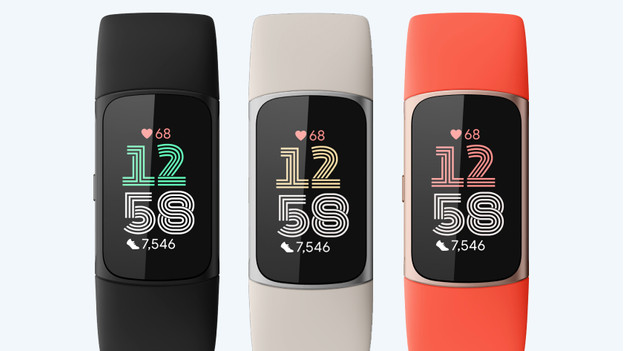
Fitbit has released a newer model in the mean time, the Fitbit Charge 6. We no longer sell the Fitbit Charge 4 and 3. The Charge 6 has more Google functions and is more accurate than the Charge 5. View it here.
Design
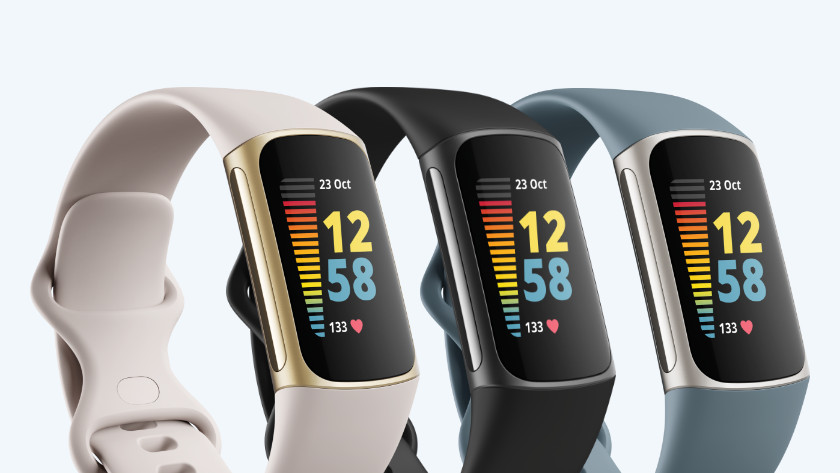
Fitbit Charge 5: color screen, stylish design
The design of the Fitbit Charge 5 is more stylish and elegant than that of its predecessors. Thanks to the glossy watch case, the activity tracker matches the design of the Fitbit Sense and the Fitbit Luxe. In addition to that, the Charge 5 is the first activity tracker in the Charge series with a color screen. This allows you to enjoy checking your health statistics and smartphone notifications even more.
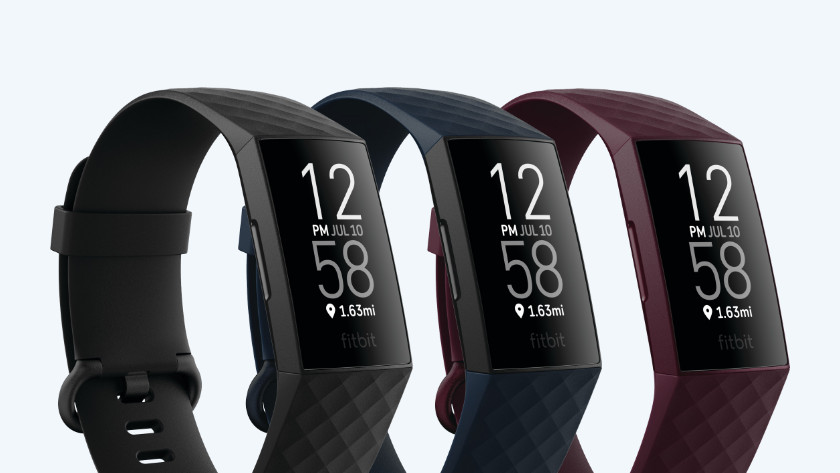
Fitbit Charge 4: black and white screen, 26g
The Fitbit Charge 4 has a black and white screen. Just like its predecessor, the Charge 3. The design of the Charge 4 isn't very different from that of the Charge 3, but the Charge 4 is a lot lighter. It weighs only 26g, so you'll hardly feel it on your wrist while working out.
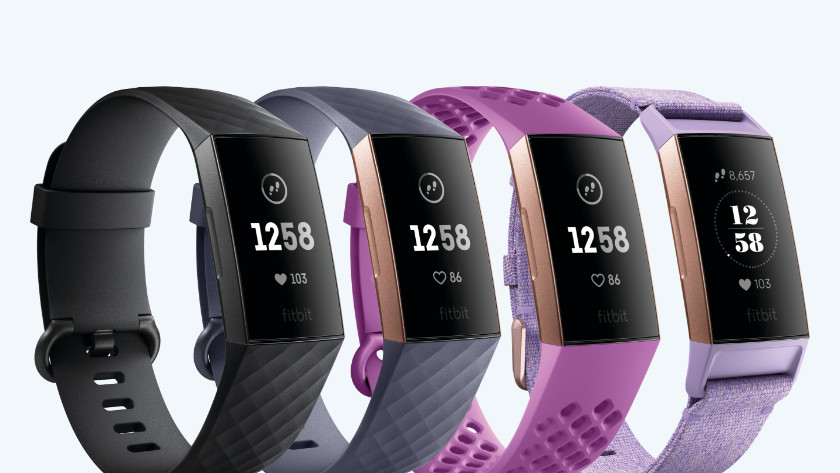
Fitbit Charge 3: black and white screen, 51g
The Charge 3 is the older, heavy brother of the Charge 4. As it weighs 51g, you can feel this 3rd generation on your wrist more than the Charge 4. The Charge 3 also has a black and white screen, so your information and messages won't look as vibrant on your screen like on the color screen of the Charge 5.
Fitness functions

Fitbit Charge 5: measures heart rate recovery and heart rate zones
With the Charge 5, Fitbit introduces a new sports function for its activity trackers: heart rate recovery. Based on various health statistics, the Fitbit calculates whether your body is ready for the next workout or whether you should rest a little longer. This heart rate recovery is part of Fitbit Premium. In addition to the heart rate recovery, the Charge 5 also measures your heart rate zones. Thanks to Premium, you have access to dozens of different workouts with this activity tracker.

Fitbit Charge 4: measures heart rate recovery and heart rate zones
As the heart rate recovery is part of Fitbit Premium, this is also available for the Charge 4. The Charge 4 measures your activities in a smarter way than the Charge 3. That's because it measures heart rate zones, also known as 'minutes in active zones'. The World Health Organization recommends 150 minutes of physical activity with a moderate intensity or 75 minutes of intense physical activity on a weekly basis. By measuring your heart rate zones, you'll know whether you've reached that goal.

Fitbit Charge 3: no heart rate zones
With the Charge 3, you can track your steps, workouts, and heart rate, but not which heart rate zone you're working out in. This means that you won't know whether you're training in the right way for your goal, or whether you've reached the weekly goal of the World Health Organization.
Health functions

Fitbit Charge 5: measures stress, heart rhythm, and sleep extensively
The Charge 5 is the first of the Charge series with an EDA sensor. This sensor measures your stress levels. If your score is high, it means you've got it under control. If your score is low, you can easily do breathing or mindfulness exercises with the Charge 5. This model also has an ECG heart rate monitor, which allows you to make cardiograms. And you can keep the Charge 5 on at night, as it measures your sleep. With Fitbit Premium, you even get insight into your sleep pattern and can check whether or not you snore.
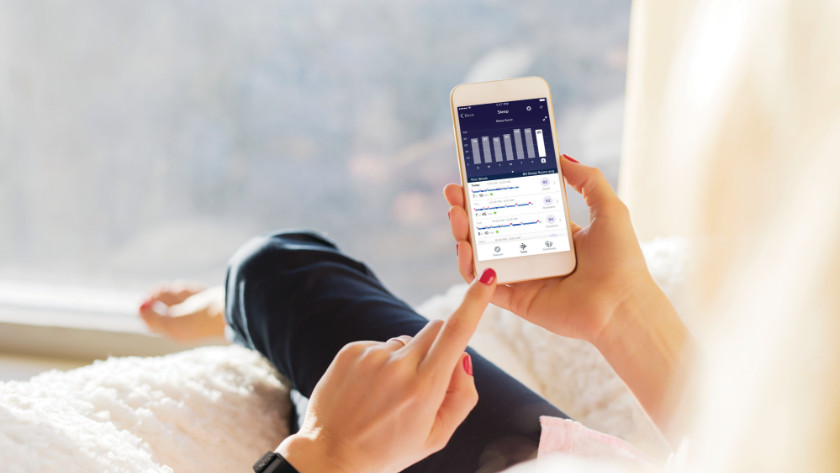
Fitbit Charge 4: measures heart rate and sleep in sleep mode
The Fitbit Charge 4 doesn't have an ECG heart rate monitor, but it does have an optical heart rate monitor. This measures your heart rate continuously, even during your workout. You can easily find your heart rate statistics in the Fitbit app. You can also wear the Charge 4 when you're sleeping. Thanks to the sleep mode, your screen stays black and you won't receive any notifications on the tracker. This way, you can continue to sleep undisturbed.
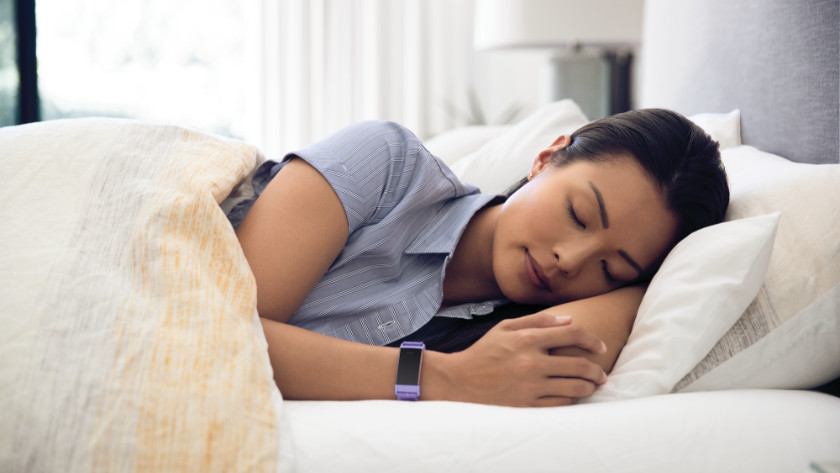
Fitbit Charge 3: measures heart rate and sleep
The 3rd generation Fitbit Charge also has a heart rate monitor and measures your sleep. The one thing this Charge doesn't have, is a sleep mode. This means that you'll continue to receive notifications from your smartphone when you're sleeping. The screen of the tracker also lights up when you move in your sleep.
Conclusion
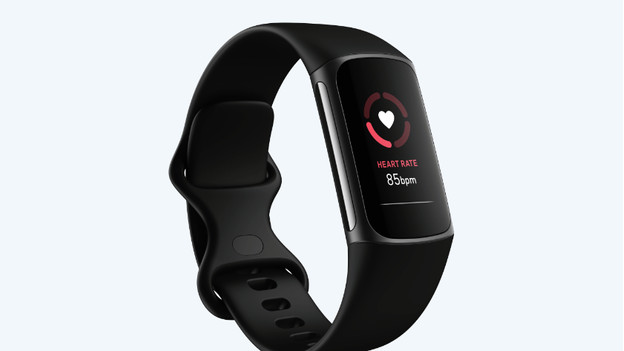
Thanks to the heart rate recovery function, the EDA sensor that measures stress management, the color screen, and the stylish design, the Fitbit Charge 5 is a worthy successor of the Charge 4 and 3. Are you looking for an activity tracker with advanced health functions? We recommend the Charge 5. Do you have a Charge 3 and are you not impressed by the EDA sensor, ECG heart rate monitor, and the new design? The Charge 4 is a good choice for you.


